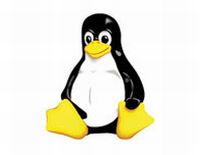
Microsoft has a big launch event today in New York City for Windows 8. Surprisingly I got invited, but no I won’t be there. Linux users like myself however really should thank Microsoft though, Window 8 is truly a great gift.
Unlike Windows 7, which provided Microsoft’s large user base with an evolutionary path forward from Windows XP, with a look, feel and overall experience that was better – Windows 8 is a different beast.
I’ve had to support a couple of Windows 8 (preview) users for a few months now and the experience has taught me one thing – Windows 8 is unlike other Windows and it’s not something that most users will like. In my case, the users wanted Windows (but they wanted it for free) so I said ‘hey you can try Windows 8. Windows 8 takes an app-centric view of the desktop, which might work for tablets, but deskop users aren’t used to that. In fact, in my users’ experience the most often clicked app was ‘desktop’ because all they wanted to do was get the ‘regular’ Windows experience.
It’s a GOLDEN opportunity for Linux.
Linux (be it GNOME Shell, Unity or KDE 4.x) has already undergone a desktop evolution. While I personally don’t like Shell or Unity (MATE/Cinnamon!), the bottom line is that Linux today offers desktop users more choices, traditional or otherwise than Windows 8. With such a massive change in Windows 8 that is undoubtedly disruptive to the vast majority of Microsoft’s user base, Linux can and should emerge as a free and genuine alternative.
Unfortunately, no major Linux distribution vendor is really pushing that message. But I also have no doubt that legions of IT consultants and help desk types will push the message. Linux will move forward from the ground up and creep in for those users that don’t want Windows 8, can’t afford Mac and don’t want to pirate Windows 7. No, it’s the Linux desktop dominance dream that many people once had, but it’s more realistic.
Market disruption is always an opportunity for change and Window 8 is disruptive. The various Linux desktop out there provide a real option for this new era. The app centric view of the world is not how desktop users work. It’s a reality that Microsoft should understand but they don’t.
Windows 8 will likely dis-enfranchise millions from the Microsoft treadmill of desktop dominance updates of the past two decades. I know there are some analysts who claim that enterprises will move to Windows 8, but if you look closely, many of those analysts are the same that predicted that Itanium would dominate by now. 2013 is not going to be the year of the Linux desktop, but it will likely be a year in which (some) users realize they have a choice.
Sean Michael Kerner is a senior editor at InternetNews.com, the news service of the IT Business Edge Network, the network for technology professionals Follow him on Twitter @TechJournalist.


